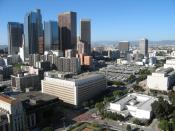The history of modern law enforcement began 179 years ago with the formation of the London Metropolitan Police District in 1829. This police force was headed by Sir Robert Peel whom many consider to be the ÃÂfatherÃÂ of modern policing. The principles espoused by Peel included the use of crime rates to determine the effectiveness of the police; the importance of a centrally located, publicly accessible police headquarters; the value of proper recruitment, selection, and training of police officers; the establishment of regular patrol areas, known as ÃÂbeatsÃÂ and a paramilitary command structure.
British citizens quickly embraced the ÃÂbobbies,ÃÂ however the feelings of United States citizens towards their police forces, developed along lines roughly similar to those of the London police were quite different. Most major U.S. cities had police forces that were under the command of politically appointed local precinct captains. The propensity of these captains to be lax in their discipline led to abundant instances of graft.
Americans generally held their police in very low esteem. ÃÂOf all the institutions of city government in late-nineteenth-century America, none was as unanimously denounced as the urban police,ÃÂ wrote sociologist Egon Bittner. ÃÂAccording to every available account, they were, in every aspect of their existence, an unmixed, unmitigated, and unpardonable scandalÃÂ (Bittner, 1979). As one might imagine, this fact led to many instances of conflict between the police and citizens.
While many things have changed as policing and society itself has become more modernized over the years, one thing that has not changed is instances of conflict and violence between the police and citizens. Most major cities in the United States have, at one time or another, experienced this conflict and violence in the form of rioting (National Advisory Commission on Civil Disorders, 1968). While riots have never reached the level...



A+
Very informative. Gave lots of details and had many resources to back it up. Good essay!!
0 out of 0 people found this comment useful.